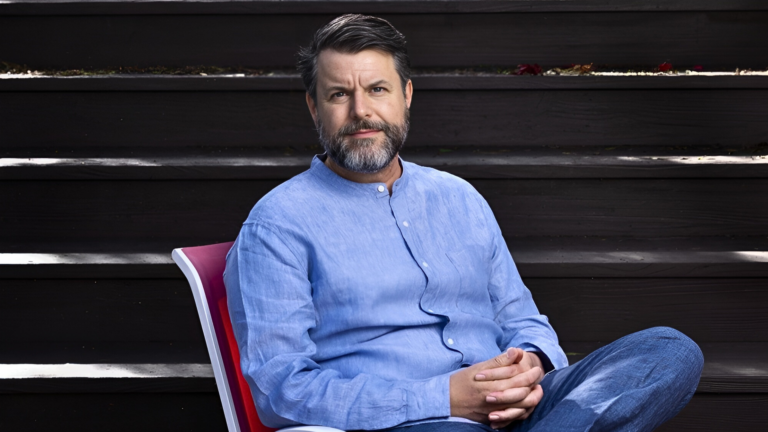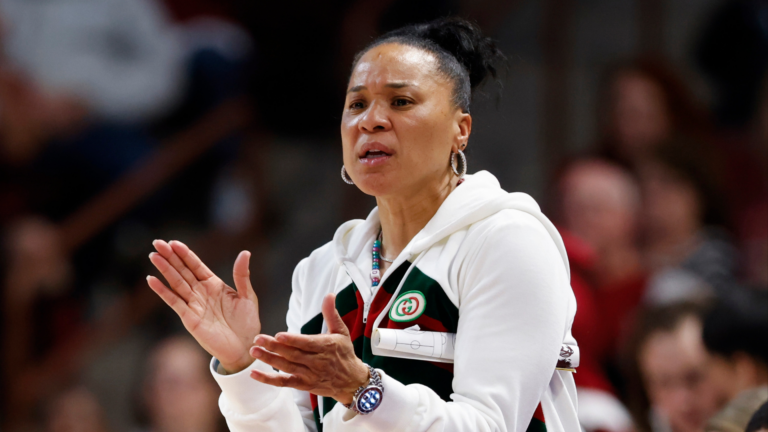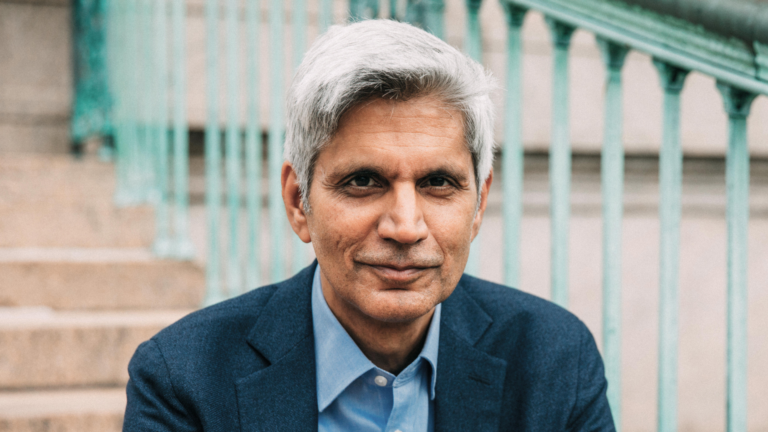This week’s conversation is with Joe de Sena, the founder and CEO of Spartan, the world’s leading endurance sports and wellness brand.
Throughout his lifetime, Joe has competed in any extreme sports adventure he could find, testing his mental and physical endurance against nature.
His racing resume is the stuff of legend – over 50 ultra-events overall and 14 Ironman events in one year alone.
And that led to Spartan – a global experiential sport and wellness brand with a 10 million+ strong community.
It creates transformational experiences, products, and content to help people, companies and teams tear down boundaries and expand what they believe to be possible.
I wanted to have this conversation with Joe to better understand what drove him to create Spartan.
We discuss purpose, sacrifice, work/life balance, habits for living healthier and so much more.
“Win or lose. I don’t care. I just want to know you work hard.”
In This Episode:
His mindset growing up
I build businesses since I was a kid. I just could never get my head around laziness, not being able to show up a few minutes early, not being able to take care. I just couldn’t understand why some people can’t their shit together. I’m resigned to the fact that we have to do it for people. I sound like a crazy person. I know. But it’s not working. Look at the data. Yes, you’re getting after it. I’m getting after it. There’s 1% of us who are getting after it. Everybody else is falling into the trap by eating Velveeta cheese, staying up late, addicted to their phone. It’s not good for any of us.
Why this path for him
My mom was pushing this philosophy in the ’70s. I was pushing back. I was in a neighborhood, organized crime capital of the world. It was very normal to be eating cannolis or raviolis and sauce and peppers, and aspiring to be a wise guy. People didn’t take care of themselves. We didn’t know any better. My mother found vegan lifestyle. She started teaching yoga. I watched her fast; no food for 30 days. She was pretty extreme. This was in the ’70s, early ’70s. There was no whole foods. There was no yoga journal. This was not common. Talk about paddling upstream, I watched her over the next 30 years pushed this lifestyle and transform people, and ultimately I bought in.
What happens when he’s competing in a Spartan event?
Lots of hallucination. I get to a place and I think everybody should get to this place where I just want water, food and shelter. We used to live in that place. Most of the time our speeches has been on the planet. We don’t have access to being able to pull to a drive through and get food. But when you get to a place where you’re cold, you’re tired, you’re hungry, it melts away all the bullshit in your mind that you’re dealing with, that is irrelevant. That’s a really refreshing place to be. It sucks. I can’t tell you how many times I’ve been there and I said, “Maybe I should just take up ping pong.” But then you’re through it and you’re like, “Oh, my God! That was so nice.” Your shoulders drop. You’re hurting, but it’s just like nothing else matters. That’s a nice place to be.
How does he approach balancing time with work and family?
I go back to that word, integration. I think work-life integration. I just mix it all together in a way. I reconcile it in my head is I say, “Look. If was back on Wallstreet and I was working on a trading desk; or I was in organized crime; or I was just mountain climbing for myself, for my own pursuit; that would be really selfish taking that time away from the family. That would not be the right thing to do.” But we, as family, own this brand called Spartan that does thing that changes lives. When people are that impacted, we’re doing good work. There’s got to be a little sacrifice in the family. Again, I’m not out drinking at night. I don’t play golf. I’m not climbing mountains. I stopped all those crazy races once we started having children. I don’t waste time other than what we do.
What habits would he recommend others adapt?
Wake up early. Most people… Most, not everybody. They have to get to work. They have to do something. They have to go to school. You want to wake up early. You can’t change that. That’s just by default go to bed early because you got to wake up early. Right? Nobody can argue with me there. As soon as you wake up, drink a couple of glasses of water, room temperature water. Put a little lemon, apple cider vinegar in it if you want. Then from there, get a sweat on everyday. You don’t need to go run an ultramarathon, but 30 minutes you got a good sweat on. Do some burpees. Do some pull-ups. Go for walk. Whatever. Eat a salad. Try to eat a salad with every meal. If you’re going to have a bowl of Dunkin’ Donuts cereal with sugar and fucking all that shit on it, have a salad with it at least. Eat between 9:00 in the morning and 5:00, 6:00 PM because we’re not designed to eat non-stop. Yeah. That’s it. If you did that, I’d be thrilled.
When is it ok to quit?
My belief is the number one motivator for human being is the avoidance of discomfort. We do that to stay alive for million years in the planet. Freezing to death in the cold, that would be uncomfortable. Your brain subconsciously say you don’t do that. Anything uncomfortable, your brain is avoiding that discomfort. I’ve done this for millions and millions of people. I’ve had personal interactions with at least 50,000 people where they want to quit. They’re in the middle of a three-mile race, an eight-mile race, a 72-hour race, or whatever. It’s hard. It’s uncomfortable. I’ve had these conversations with myself. You’ve had the conversation. What happens is your brain spits out a bunch of logical reasons. When is it okay to quit? The way I come up with the litmus test on when that was a legitimate quit or not is it depends on your purpose in life. It depends on your true north. You got to have some reconciliation, some test that when you’re really under stress and the shit’s hitting the fan and subconsciously you’re body saying quit. You’re able to look at it and say, “Wait a minute. Does this action I’m taking right now align with my values, my beliefs, et cetera?” Because most times it’s just your brain saying, “It’s too hard.”
Questions that help with clarifying purpose
I like three questions. What would you do if you had all the money in the world? I like that question. What would you do if today was your last day on Earth? I like that question. But my favorite question, my third one I would ask yourself: What would you do if you knew you’re going to fail anyway? I failed at Spartan for 15 years. I didn’t make money. It was a disaster. But I keep doing it anyway. Clearly, I love to do this. Right? Yeah. That’s what I would do. Make sure you’re healthy as you can be when you’re analyzing that question.
When he looks back what’s most painful?
I could have did it more for my mom before she died. I could have did it for my father. I could have went to see my father more. The last 5, 10 years of his life, I was so wrapped up in being on Wallstreet and making money, and getting ahead. I missed a lot of weddings. I missed a lot funerals because I’m so wrapped up in what I do. I got regrets. I got regrets there, but it’s the past. It’s over. It’s over. Five seconds ago is not coming back. I’m pushing forward. That’s what I got to work on. What’s ahead of me, not behind me.
If he could sit with a master and ask them anything…
Bruce Lee. My question would be: Show me the way.


